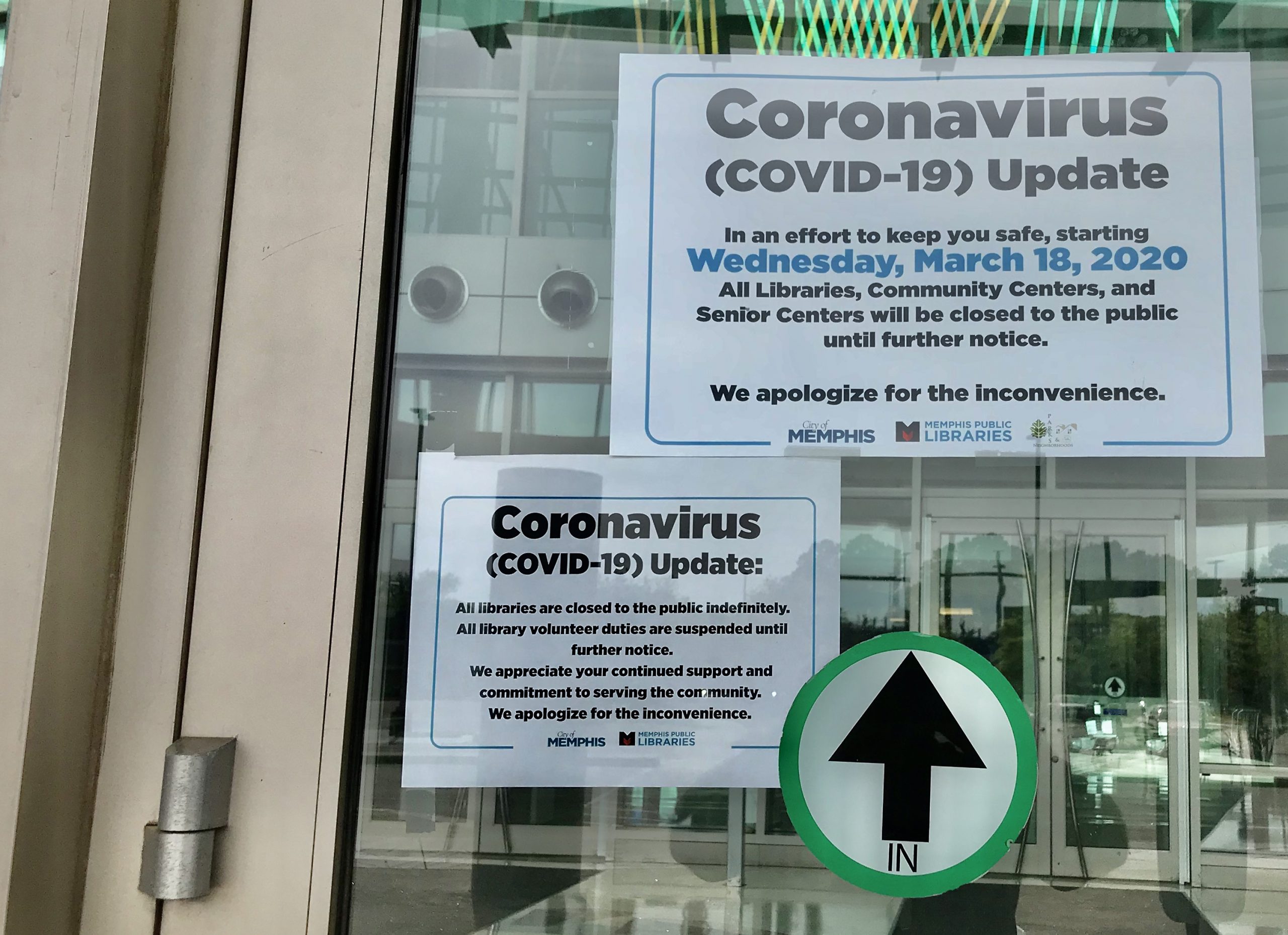Your correspondent writes another letter to Colonel John McLeod Keating, managing editor of the Memphis Daily Appeal during the 1878 yellow fever epidemic, where he describes the response of public employees to the Covid-19 pandemic.
Dear Colonel keating:
Memphis is still closed. Face masks are common and it remains difficult to purchase some of what one needs. The lack of work and food continues to haunt parts of the city.
As I’ve mentioned in previous letters, Memphians have stayed home to protect others. However, they have done so much more than that. Helping neighbors with an abundance of kindness has become Memphis’s most important industry. At the same time, city employees have remained at their posts, doing what they can to keep Memphis functioning. Garbage is still being dispatched, fire and police protection remains and all other city functions continue.

Many city employees have done more than stand their post. None more so than the staff of the Memphis Public Libraries. Since we closed in mid-March, library staff have worked very hard to bring as many services as possible to the citizenry. This has included virtual story times for children, answering email questions, creating videos that teach citizens how to make art, grow plants and practice yoga. Linc/211 averages 300 calls a day helping Memphians successfully navigate this calamity. Several staff members have been doing contact tracing for the health department. Library staff have been boxing and delivering meals for MIFA and handing out lunches to schoolchildren, and anyone else, at several locations.

The history department – Gina Cordell, Robert Cruthirds, Scott Healy, Verjeana Hunt, Scott Lillard, SeCoya McNeil, Leigh Ann Scarbrough, and Marilyn Umfress – have been ordering e-books, writing book reviews, creating Memphis history videos and serving meals.
Recognizing the historic nature of the pandemic, staff have been collecting photos and documents and developing plans to create an extensive Covid-19 manuscript collection. The collected items will not only help future generations understand this time, but also serve as a model for how to preserve history during a civic emergency. Our plans include collecting material from local businesses, the government and the health care community. We will also conduct interviews with anyone who is willing to tell us their story. When we are done, we expect the collection will be one of the most significant in the nation.
Library staff have also been writing essays chronicling their experiences during the pandemic. South branch Manager Terrice Thomas wrote, “I now have a renewed admiration for the MPL staff, especially my South peeps! It’s no secret that I’m an overachiever; and so are they. Everything I’ve asked them to do, from MIFA meal deliveries, Facebook storytimes… and reaching out virtually to our community partners; the South Branch staff has stepped up. We are determined to come out of this helping the community….”
Echoing Terrice, Library Assistant Holly Keating explained that “I am so inspired by this library system. We are always looking on the bright side and our drive to help others never wavers. We are putting some joy out into the world with virtual programming. We are working to ensure our eCollection will help enrich people’s time at home. We are boxing and delivering meals with MIFA to people who need them. In LINC, we are connecting people with vital resources and providing accurate information. So many people volunteered to do these things and that is what gives me hope. People doing what they can, no matter how small, is how we will get through this.”
Finally, Library Assistant Johnnie Mosley clearly describes the library’s culture of service in his essay. “I know, as we continue to work through this pandemic, the Memphis Public Libraries will continue to be a classic example of the words of Ralph Waldo Emerson, the famous lecturer and poet, ‘But there is no end to the praise of books, to the value of the library.’ This is the great testament to the spirt of the Memphis Public Libraries. This is why customers are calling and asking LINC, ‘When is the library going to re-open?’”
That’s the way Memphis is in the last week of April in the year of our Lord 2020.
I remain,
Your faithful corespondent
G. Wayne Dowdy
Photos courtesy Wayne Dowdy.
Memphis author and historian Wayne Dowdy is the Manager of the Main Library’s Memphis and Shelby County Room. He also writes for the local monthly publication Best Times and is the author of several books on Memphis history, including A Brief History Of Memphis, Hidden History Of Memphis, and Mayor Crump Don’t Like It.

